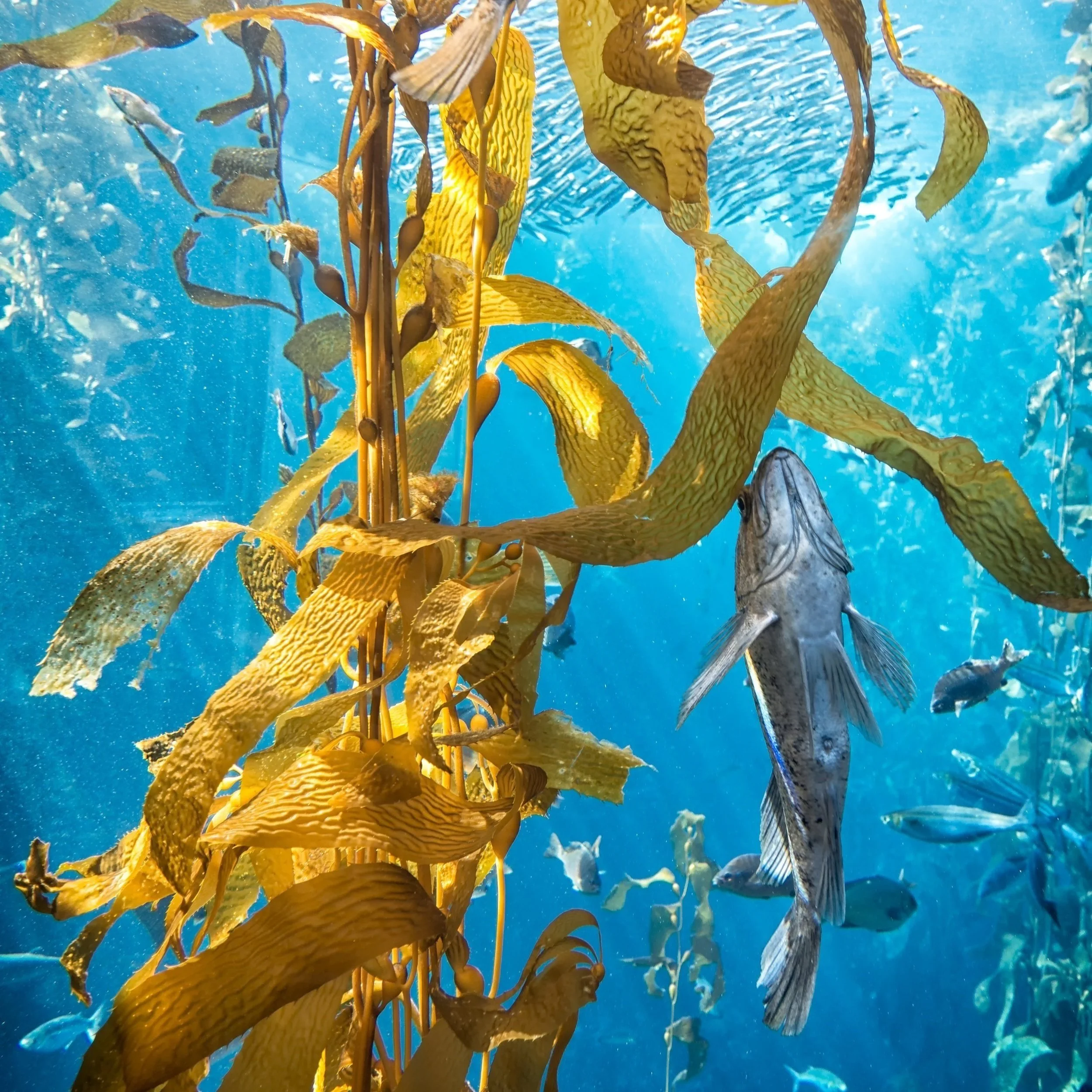MARBLIS Urchinite™
MARBLIS architectural surfaces are produced in California, and made from marine biocalcites derived from ecologically destructive species to restore balance in the oceans. Debut product, Urchinite™, is the world’s first biomarble made from sea urchins - mineralized from overabundant purple sea urchin shell. Urchinite represents a breakthrough in material science and ecological design: a biomarble engineered not just for beauty and durability, but for environmental repair.
"In nature, nothing exists alone" — Rachel Carlson, silent spring
Once a symbol of underwater imbalance, the overpopulated Strongylocentrotus Purpuratus, also known as the purple sea urchin has devastated California’s kelp forests, stripping once-thriving marine ecosystems down to sea urchin deserts. Urchinite offers a tangible solution, where each biomarble is made from purple sea urchins harvested from overabundant urchin barrens — helping to restore balance beneath the waves. Once deemed a "zombie" nuisance, the purple sea urchin is now being reimagined as a symbol of recovery and transformation, where each surface is traceable to a marine restoration event. Urchinite™ is the culmination of years of research, blending cutting edge materials science, biodesign innovation, and artisanal craftsmanship into a product that is as high-performing as it is meaningful and beautiful.
Made from Purple Sea Urchin Shells
While purple sea urchins are native to California, they have contributed to massive kelp forest decline. Over 95% of California’s coastal kelp are gone due to strongylocentrotus purpuratus, purple sea urchins. The loss of kelp has generated a domino effect, causing a series of negative downstream impacts across land and sea. Kelp are the forests of the sea and with them gone, fish and wildlife are also diminishing. Kelp forests also play an important role in climate change - sequestering over 20 times more CO2 than land-based forests over the same area. Collapse of the kelp ecosystem have had devastating economic and social impacts on coastal communities.
ReGenerating Kelp Forest Biodiversity
Primitives Biodesign has been working with ocean conservation non-profits and regional communities in California to restore kelp forests by creating a product that can drive purple urchin removal and large scale kelp reforestation. Primitives has created the world’s first fine marble stone made from sea urchins. For every 50 units, 1.1 acres of purple sea urchins are cleared to make way for kelp forests to rebound. Kelp are amongst the fastest growing crops in the world. So when you remove their overgrazing purple urchin predators, kelp can rapidly reforest. Kelp reforestation then provides a rich food source and habitat for coastal marine life - creating a thriving and biodiverse ecosystem.
-
Under normal conditions, sea urchins commonly shelter in rocky crevices and feed on drift kelp that settles on the seafloor. With heat waves and loss of key predators, purple urchin populations have surged—by as much as 1,000% in some areas. Due to this, over 95% of Northern California’s kelp forests have disappeared in the last decade, leading to biodiversity loss and economic strain across coastal communities.
-
While sea urchins are native to California, purple sea urchins are overpopulated and are decimating kelp forests. Sea urchins can be invasive in other regions and ecosystems.
-
The sunflower star and sea otters are major predators of purple sea urchins. However, beginning in 2014, a “perfect storm” that included heat waves, wasting disease, and loss of predators led to significant increase of purple sea urchin populations.



